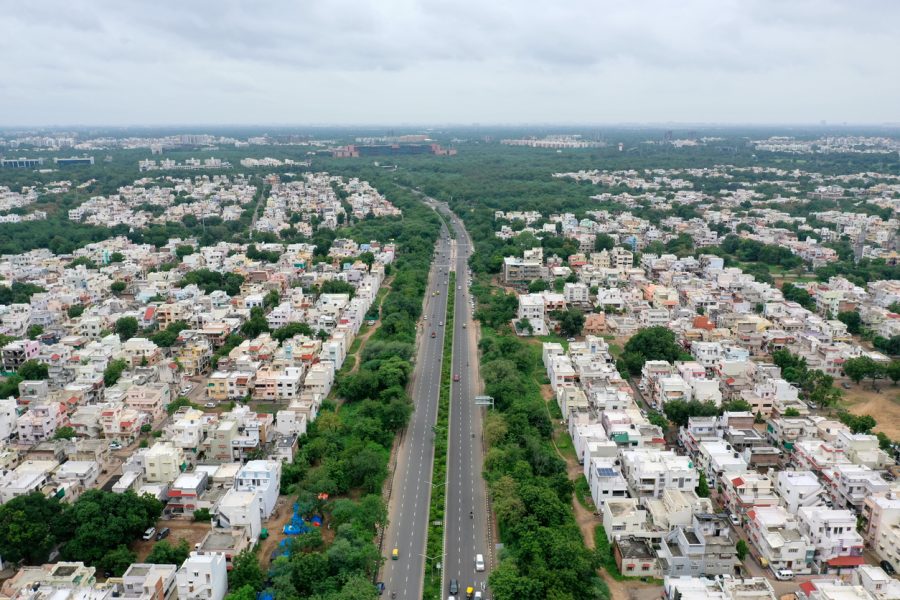Gujarat: Jantri land rates hike leaves real estate sector jittery
The issue of meagre compensation due to old Jantri rates has been at the heart of every protests against land acquisition in Gujarat
;
The Annual Statement of Rates (ASR) or Jantri rate of land has been revised in Gujarat after 12 years, causing a huge worry to the real estate sector. The ASR had not been touched since 2011 but has not been doubled. It will be implemented across the state from February 4, as per an announcement made by Chief Minister Bhupendra Patel.
If the existing value of a property is Rs 100 per square metre, it will be Rs 200 from February 4, the government notification read.
New stamp duty
The GO added that the government circular stated that those who register their properties on and from February 4 will be required to pay registration and stamp duty as per the new Jantri rate.
“The government will pay compensation to those who have booked properties before February 4 under old Jantri rates and land was acquisition was made later as per new Jantri rates,” said Rushikesh Patel after a cabinet meeting that decided the change in ASR.
However, a day after the announcement. the real estate sector of Gujarat raised various concerns. The industry held that the decision will affect the new projects the most prices are likely to go up by around 20 percent.
Floor Space Index
Further, the redevelopment work of several societies will have to be put on hold owing to the increase in Floor Space Index (FSI) premium, said the representatives of the sector.
A delegation of real estate developers from Ahmedabad, Rajkot, Surat and Vadodara districts represented by the Confederation of Real Estate Developers (CREDAI) met the Chief Minister urging him to extend the implementation from May 1 this year.
The CREDAI also sought to exempt the constructed properties from the revised Jantri rate.
“We believe Jantri rates should be increased. At the same time, we demand it should be done in a scientific way. While land prices have increased manifold in the last decade, price of properties have not increased at the same pace. The umbrella increase in Jantri rates will adversely affect the affordable housing projects,” Tejas Joshi, President CREDAI, told the media.
Builders lament
“We have stated our concerns in detail in a meeting with the Chief Minister and the Chief Secretary. Developers are expecting a reduction in Jantri rates. However, until a final decision is reached, the rates will be calculated as per revised Jantri rates. In case the Jantri rates are not decreased, the government should consider to decrease the purchase FSI and land premiums to 20 per cent of the value of Jantri instead of the current 40 per cent. This was done while increasing Jantri rates in 2011 as well. It had ensured that the real estate remained viable,” added Joshi.
Noticeably, the farmers and land owners who have lost or will lose land in various government projects have been demanding that the compensation be calculated as per a revised Jantri rate or current market rate for years.
The last time the ASR was revised in Gujarat was on April 18, 2011. In every government project since then, land had been acquired from farmers or landowners with compensation paid as per the Jantri rates of 2011, which in years valued less than current market rates of land.
Land grab
Gujarat has a history of rampant land acquisition for industrialisation and aggressive urbanisation. However, by far, most grab has happened in South Gujarat. In a stretch of about 280 km between Surat and Mumbai, land has been acquired for multiple projects like freight corridor, bullet train, National Highway 8, various GIDC (Gujarat Industrial Development Corridor) and for laying out of pipeline by Reliance and ONGC.
The issue of meagre compensation due to old Jantri rates has been at the heart of every protests against land acquisition in Gujarat.
Currently, farmers from multiple districts of South Gujarat are protesting and fighting a legal battle against alleged land grab for the bullet train project and a freight corridor that will pass through extremely fertile mango and chiku orchards, schools, cemeteries and even through villages while displacing entire population.
In October 2016, a group of over 50 farmers from Surat had fought and lost a case against Reliance Industries, which had acquired land to transport gas from the Krishna Godavari basin to Gujarat. The Supreme Court had dismissed the farmers’ plea for higher compensation.
Land protests
The same year, the Ministry of Road Transport and Highways initiated acquisition of 111 hectares of land between Maharashtra and Gujarat for the 380-km Ahmedabad-Vadodara-Mumbai Expressway amid protests by farmers and landowners while paying compensation as per old Jantri rates.
In 2017, the Union Cabinet approved a proposal to transfer 4.64 hectares owned by Indian Institute of Soil and Water Conservation Research Centre in Anand in central Gujarat, under old Jantri rates, to upgrade the Ahmedabad – Vadodara highway to six lanes.
In 2018, the Comptroller and Auditor General of India (CAG), in its report on the revenue sector for 2016-2017, called the rates “unrealistic” and stated that the “government may formulate a sound scientific valuation to estimate property value with specific, streamline procedures”.
